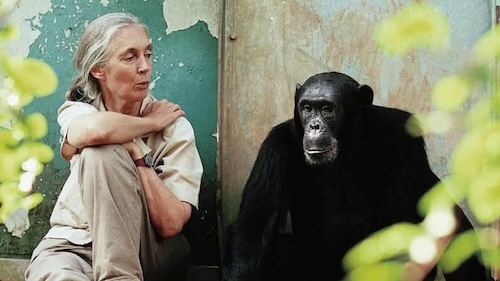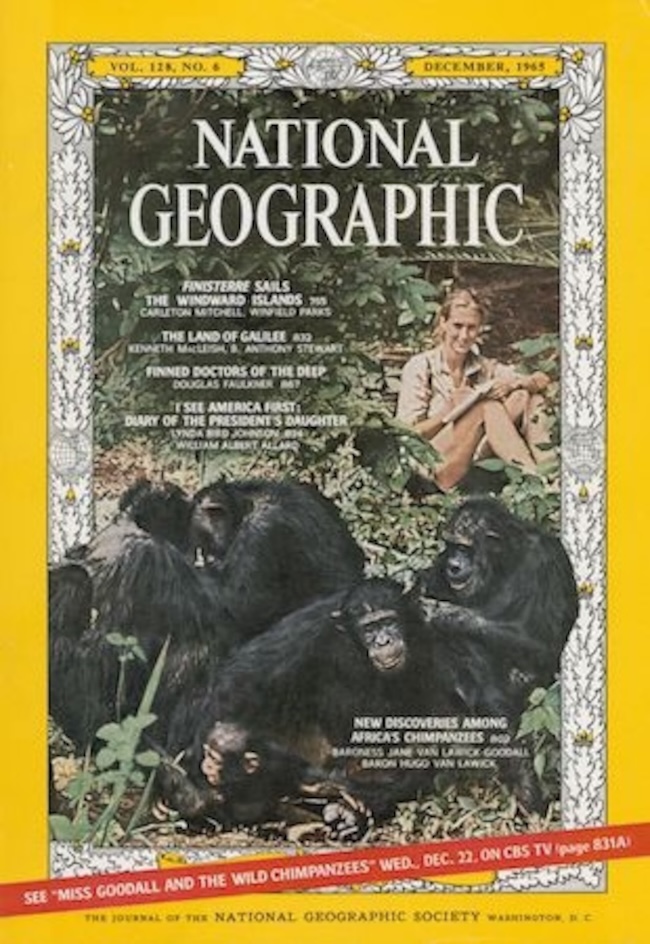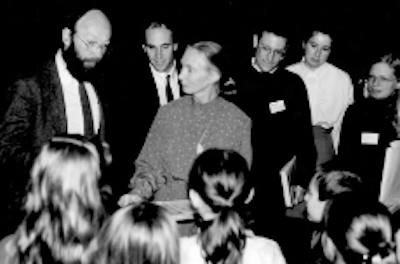I was saddened to hear of the passing earlier this week of renowned primate researcher and conservation advocate, Jane Goodall, at 91.

I saw and heard a presentation she gave many years ago at a youth conference in Vancouver, BC, during which she enthralled the audience with her chimpanzee calls and many stories of researching chimps and other animals over many decades (!). When her presentation ended, I remember seeing throngs of youth following her around, listening to more stories she related on stairs and in hallways. And I remember she answered all questions with deep sincerity and a presence I’ve rarely encountered since in any academic celebrity.
Her story has two remarkable components for me. First, she had a passionate interest as a child in reading books about adventures in Africa, most of them centered around animals. This set her lifework in motion, as she determined to travel to Africa while still a young girl and also make animals the focus of her career.
Second, when she undertook her first research projects studying chimpanzees under the tutelage of the renowned paleontologist, Dr. Louis Leakey, she rooted her study in observing chimps in their natural habitat. Following her initial study, she intentionally pegged her research career to this theme. Astoundingly, most research of primates to that time – in fact, the bulk of ethological investigation (study of behavior) – was based in observing organisms in captivity. Jane Goodall, with Dr. Leakey’s help, upended the research notion that research-in-captivity produced reliable insights about authentic animal behavior. Her studies repeatedly identified numerous instances where research-in-situ produced insights at great odds with research studying primates-in-captivity.

This provoked venomous personal attacks on her work but she stuck to her claims and methods, and changed forever the nature of what passes for biological knowledge about primate behaviour, and more.
My late partner-in-education, Brent Cameron, was a deep fan of Jane Goodall and her work. So much so, he and a group of children he was stewarding in his Wondertree program in Vancouver, presented her with a ‘Wondertree‘ award for her contributions to knowledge that helped “make the world a better place.” Brent also adapted Jane’s ethos of recognizing the value of studying organisms in their environment, in his studies of children learning. Most such studies, Brent correctly pointed out, were of children-in-schools, which he contested was an artificial learning environment.

In pioneering what he described as ‘natural learning’, Brent documented a much different scope of learning in a Masters thesis (SFU, 1989), a book (SelfDesign: Nurturing genius through natural learning; Sentient, 2005), and his PhD dissertation (UBC, 2010).
As one who also researched human learning – in schools and ‘beyond school’ – I am as grateful to Brent’s insights and writing, as I am to Jane Goodall.

 Michael’s book, Learn Your Way! SelfDesigning the Life You Really Want, Starting Now is an ERAC-approved middle and high school textbook for career planning and health education courses (British Columbia), and it has received many endorsements. Contact Michael directly to obtain a pdf copy of the book.
Michael’s book, Learn Your Way! SelfDesigning the Life You Really Want, Starting Now is an ERAC-approved middle and high school textbook for career planning and health education courses (British Columbia), and it has received many endorsements. Contact Michael directly to obtain a pdf copy of the book.
No comments yet.